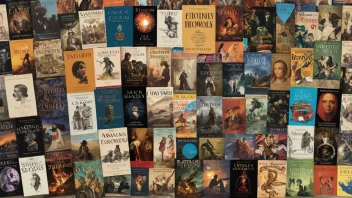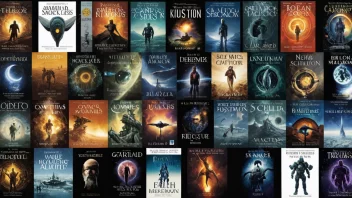Young adult (YA) literature has evolved significantly over the years, reflecting the changing landscape of society and the diverse experiences of its readers. One notable aspect of this evolution is the impact of various cultural movements on the themes, narratives, and characters found in YA books. From feminism to LGBTQ+ rights, these movements have profoundly shaped the stories that resonate with young readers today.
One of the most significant cultural movements influencing YA literature is feminism. As discussions around gender equality have gained momentum, authors have begun to explore themes of empowerment, identity, and social justice. Books like The Hate U Give by Angie Thomas and Girl, Serpent, Thorn by Melissa Bashardoust feature strong female protagonists who challenge societal norms and fight for their rights. These narratives not only entertain but also educate young readers about the importance of standing up for oneself and others.
Another critical movement is the push for LGBTQ+ representation in literature. As acceptance and visibility of LGBTQ+ identities have increased, so too has the presence of queer characters in YA fiction. Novels such as Simon vs. the Homo Sapiens Agenda by Becky Albertalli and Aristotle and Dante Discover the Secrets of the Universe by Benjamin Alire Sáenz highlight the struggles and triumphs of young LGBTQ+ individuals. These stories create a sense of belonging for readers who may have felt isolated and encourage empathy among those who may not share the same experiences.
The rise of multiculturalism in society has also left its mark on YA literature. As the world becomes more interconnected, stories that celebrate diverse cultures and perspectives are increasingly prominent. Books like Inside Out and Back Again by Thanhha Lai and American Street by Ibi Zoboi explore the immigrant experience and the challenges of navigating multiple identities. These narratives not only broaden the scope of YA literature but also foster understanding and appreciation for different cultures among young readers.
Moreover, the impact of the environmental movement cannot be overlooked. Climate change and ecological issues are becoming more pressing, and authors are responding by integrating these themes into their work. Novels like H2O by Virginia Bergin and The Last Book in the Universe by Rodman Philbrick tackle the consequences of environmental neglect, encouraging young readers to think critically about their role in the world and the importance of sustainability.
In conclusion, cultural movements play a vital role in shaping young adult literature. By reflecting the values, struggles, and triumphs of society, YA authors create stories that resonate with their audience and promote a deeper understanding of the world. As readers engage with these narratives, they not only find entertainment but also gain insight into important social issues. The future of YA literature promises to continue this trend, exploring new themes and perspectives that inspire and empower the next generation of readers.






